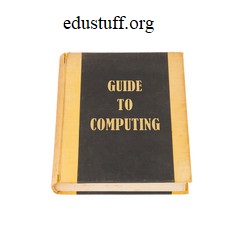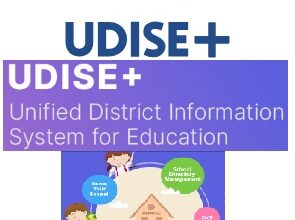
Computer Science Books
Computer Science Books
Computer science books serve as invaluable resources for individuals seeking to expand their knowledge and skills in the field of computer science. Whether you’re a student, a professional, or an enthusiast, these books provide a wealth of information on a wide range of topics, from foundational concepts to advanced theories and practical applications. In this article, we will delve into the fascinating realm of computer science books, exploring their significance, evolution, and relevance in the digital age.
Classic Computer Science Books
- “The Art of Computer Programming” by Donald E. Knuth
“The Art of Computer Programming” stands as a monumental work by Donald E. Knuth, widely recognized as a definitive guide to algorithms and programming. This multi-volume series explores the intricacies of algorithmic design, analysis, and implementation, covering a vast array of topics with meticulous detail. Knuth’s approach blends mathematical rigour with practical examples, making it an essential resource for those seeking a deep understanding of computer science theory.
- “Introduction to the Theory of Computation” by Michael Sipser
Michael Sipser’s book, “Introduction to the Theory of Computation,” offers an engaging exploration of theoretical computer science. It introduces readers to automata theory, formal languages, and complexity theory, which form the basis for understanding computation and the limits of what can be computed. Sipser’s writing style and intuitive explanations make complex concepts accessible, making this book a valuable resource for aspiring computer scientists.
- “Structure and Interpretation of Computer Programs” by Harold Abelson and Gerald Jay Sussman
“Structure and Interpretation of Computer Programs” takes a unique approach to teaching programming and computational problem-solving. Written by Harold Abelson and Gerald Jay Sussman, this book uses the Scheme programming language to explore fundamental concepts, such as abstraction, recursion, and data structures. By emphasizing the process of reasoning about programs, readers gain valuable insights into program design and the principles of software engineering.
- “Computer Networks” by Andrew S. Tanenbaum and David J. Wetherall
Understanding computer networks is essential in today’s interconnected world, and “Computer Networks” by Tanenbaum and Wetherall offers a comprehensive exploration of this subject. This book covers a wide range of network technologies, protocols, and architectures, providing readers with a solid understanding of how data is transmitted, routed, and managed across networks. From the physical layer to the application layer, the authors present network concepts clearly and concisely.
Specialized Computer Science Books
- “Algorithm Design Manual” by Steven S. Skiena
When it comes to algorithm design, “Algorithm Design Manual” by Steven S. Skiena is a go-to resource. This book provides a comprehensive overview of algorithmic problem-solving, exploring various algorithmic techniques, data structures, and optimization strategies. Skiena’s approach, which combines theory with real-world applications and examples, equips readers with the tools necessary to solve complex computational problems efficiently.
- “Operating System Concepts” by Abraham Silberschatz, Peter B. Galvin, and Greg Gagne
Operating systems are the backbone of modern computer systems, and “Operating System Concepts” serves as a fundamental guide to this critical aspect of computer science. Silberschatz, Galvin, and Gagne cover the core concepts, design principles, and functionality of operating systems. From process management to memory management and file systems, this book provides a comprehensive understanding of how operating systems work.
- “Introduction to Data Mining” by Pang-Ning Tan, Michael Steinbach, and Vipin Kumar
With the explosion of data in today’s digital age, “Introduction to Data Mining” has become an essential book for understanding the principles and techniques behind extracting valuable insights from vast datasets. Tan, Steinbach, and Kumar introduce readers to the foundations of data mining, including data preprocessing, classification, clustering, and association analysis. By exploring both theoretical concepts and practical applications, this book empowers readers to uncover patterns and make data-driven decisions.
- “Database System Concepts” by Abraham Silberschatz, Henry F. Korth, and S. Sudarshan
Databases are integral to managing and organizing vast amounts of data efficiently, and “Database System Concepts” provides a comprehensive exploration of this field. Silberschatz, Korth, and Sudarshan delve into database models, database design, transaction management, and query optimization. By understanding the theoretical foundations and practical considerations of database systems, readers gain the knowledge necessary to build robust and scalable data storage solutions.
Computer Science Books for Beginners

- “Python Crash Course” by Eric Matthes
For beginners venturing into the world of programming, “Python Crash Course” offers a friendly and hands-on approach to learning Python, one of the most popular programming languages. Matthes introduces programming concepts gradually, covering essential topics such as variables, control structures, functions, and object-oriented programming. Through practical projects and exercises, readers gain a solid foundation in Python programming.
- “Head First Java” by Kathy Sierra and Bert Bates
Java remains a widely used programming language in various domains, and “Head First Java” is an excellent resource for beginners aiming to learn Java. Sierra and Bates employ a unique teaching style, blending visual aids, puzzles, and exercises to engage readers in the learning process. This book covers key Java concepts, including classes, inheritance, polymorphism, and exception handling, allowing readers to build a strong Java programming foundation.
- “Introduction to Algorithms” by Thomas H. Cormen, Charles E. Leiserson, Ronald L. Rivest, and Clifford Stein
Aspiring computer scientists seeking to delve deeper into algorithms will find “Introduction to Algorithms” to be an invaluable resource. Cormen, Leiserson, Rivest, and Stein present a comprehensive exploration of algorithm design and analysis. From fundamental algorithms to advanced topics like graph algorithms and dynamic programming, this book equips readers with the necessary tools to solve complex computational problems efficiently.
- “Clean Code: A Handbook of Agile Software Craftsmanship” by Robert C. Martin
Writing clean, maintainable code is a crucial aspect of software development, and “Clean Code” by Robert C. Martin provides practical guidelines for achieving this goal. The book focuses on software craftsmanship, emphasizing the importance of code quality, readability, and maintainability. Through illustrative examples and best practices, Martin teaches readers how to write code that is easy to understand, modify, and extend.
Advanced Computer Science Books
- “Artificial Intelligence: A Modern Approach” by Stuart Russell and Peter Norvig
“Artificial Intelligence: A Modern Approach” is a comprehensive guide to the principles and techniques of artificial intelligence. Russell and Norvig cover a broad range of AI topics, including problem-solving, knowledge representation, machine learning, and natural language processing. With its balanced mix of theory and real-world applications, this book serves as an authoritative resource for anyone interested in AI.
- “Introduction to the Design and Analysis of Algorithms” by Anany Levitin
Building upon the foundational knowledge of algorithms, Anany Levitin’s book explores advanced algorithm design and analysis techniques. It covers topics such as greedy algorithms, divide-and-conquer, dynamic programming, and graph algorithms. With its focus on algorithmic problem-solving strategies, this book prepares readers to tackle complex computational challenges.
- “Deep Learning” by Ian Goodfellow, Yoshua Bengio, and Aaron Courville
Deep learning has emerged as a powerful tool in various domains, including computer vision, natural language processing, and speech recognition. “Deep Learning” by Goodfellow, Bengio, and Courville offers a comprehensive introduction to deep learning principles and techniques. The book covers neural networks, training algorithms, and advanced topics like generative models and reinforcement learning. With its clear explanations and practical examples, this book enables readers to understand and apply deep learning to real-world problems.
- “Computer Architecture: A Quantitative Approach” by John L. Hennessy and David A. Patterson
Understanding computer architecture is essential for designing efficient and high-performance computer systems. Hennessy and Patterson’s book, “Computer Architecture: A Quantitative Approach,” provides a comprehensive exploration of this field. It covers topics such as instruction set architecture, memory hierarchy, and parallel processing. By understanding the principles and trade-offs involved in computer system design, readers gain the knowledge necessary to build optimized and scalable architectures.
Noteworthy Computer Science Books by Pioneers
- “The C Programming Language” by Brian W. Kernighan and Dennis M. Ritchie
“The C Programming Language” is a classic book written by Brian W. Kernighan and Dennis M. Ritchie, the creators of the C programming language. This book serves as the definitive guide to C, covering its syntax, features, and best practices. It remains an invaluable resource for programmers looking to master the language and understand its foundations.
- “The Mythical Man-Month: Essays on Software Engineering” by Frederick P. Brooks Jr.
Frederick P. Brooks Jr.’s “The Mythical Man-Month” explores the challenges and complexities of software engineering. Through a collection of essays, Brooks discusses the human and organizational aspects of software development, offering insights into project management, team dynamics, and the nature of software complexity. This book remains a timeless resource for understanding the complexities of large-scale software projects.
- “Introduction to Automata Theory, Languages, and Computation” by John E. Hopcroft, Rajeev Motwani, and Jeffrey D. Ullman
“Introduction to Automata Theory, Languages, and Computation” is a seminal book that explores the theoretical foundations of computer science. Authored by Hopcroft, Motwani, and Ullman, this book covers topics such as finite automata, context-free grammars, Turing machines, and formal language theory. It serves as an essential reference for understanding computation and formal languages.
- “Principles of Compiler Design” by Alfred V. Aho and Jeffrey D. Ullman
Compilers play a critical role in translating source code into executable programs. “Principles of Compiler Design” by Aho and Ullman provides a comprehensive understanding of compiler design principles. The book covers lexical analysis, syntax analysis, semantic analysis, optimization, and code generation. With its emphasis on both theory and practice, it remains a go-to resource for compiler design.
Popular Online Resources for Computer Science Books
- Websites with Free Computer Science Books
When it comes to accessing computer science books without cost, several websites offer a vast collection of free resources. Project Gutenberg, known for its extensive collection of free e-books, includes computer science titles. OpenStax, a nonprofit educational initiative, provides free textbooks, including computer science subjects. Additionally, numerous GitHub repositories curate collections of free computer science books, covering a wide range of topics.
- Online Platforms for Buying and Accessing Computer Science Books
For purchasing computer science books, online platforms like Amazon offer a vast selection of titles. O’Reilly Media, a renowned publisher specializing in technology and computer science, provides a comprehensive range of books and learning resources. SpringerLink, a leading digital library, offers access to numerous computer science books, ensuring availability for academic and professional readers.
- Community Forums and Discussion Groups for Computer Science Books
Engaging in community forums and discussion groups can be beneficial for discovering recommendations, discussing book-related topics, and seeking assistance. Computer science books provide a platform for sharing book recommendations, reviews, and discussions among the community. Stack Exchange’s Computer Science section offers a question-and-answer format, where users can seek advice, discuss concepts, and share knowledge. Online communities dedicated to specific programming languages or technologies, such as Python or Java, also serve as valuable resources for finding book recommendations and engaging in relevant discussions.
Read Also:
Is the Nitro Scholarship Legit? Unveiling the Facts
The Future of Computer Science Books
- Influence of Emerging Technologies on Computer Science Books
As technology continues to advance, computer science books are not immune to the impact of emerging technologies. The following trends are likely to shape the future of computer science books:
- Integration of virtual reality (VR) and augmented reality (AR) for immersive learning experiences: Immersive technologies have the potential to enhance the learning experience by providing interactive and realistic simulations. Future computer science books may incorporate VR and AR elements, allowing readers to visualize complex concepts and interact with virtual environments.
- Adoption of interactive simulations and visualizations to enhance understanding of complex concepts: Interactive simulations and visualizations can aid in comprehending complex algorithms, data structures, and computational processes. Future computer science books may include interactive elements that enable readers to manipulate and visualize concepts, fostering a deeper understanding.
- Integration of machine learning techniques to personalize and adapt learning materials to individual needs: With the advancements in machine learning and artificial intelligence, computer science books may utilize these techniques to personalize the learning experience. By analyzing learners’ progress, preferences, and knowledge gaps, books can adapt the content and examples to cater to individual needs, optimizing the learning journey.
Integration of Interactive Elements in Digital Computer Science Books
Digital formats offer the flexibility to incorporate interactive elements within computer science books, enhancing the learning experience. The following interactive elements may become more prevalent:
- Interactive code snippets and programming environments within digital books: Digital computer science books can provide embedded code snippets that readers can execute and modify directly within the book. This interactive approach enables learners to experiment with code, observe the results, and gain hands-on experience.
- Embedded quizzes, exercises, and assessments to reinforce learning: Interactive quizzes, exercises, and assessments can be seamlessly integrated into digital computer science books. These features provide opportunities for readers to test their understanding, reinforce concepts, and receive immediate feedback, promoting active learning.
- Multimedia elements, such as videos and animations, to enhance comprehension: Incorporating multimedia elements like videos, animations, and interactive diagrams can aid in visualizing complex concepts. These visual representations can enhance comprehension, especially for topics like data structures, algorithms, and system architectures.
Adaptive Learning and Personalization in Computer Science Books
Adaptive learning techniques have the potential to revolutionize the way computer science books cater to individual learners. The following developments may be observed in this area:
- Intelligent systems that analyze learners’ progress and adapt content accordingly: Future computer science books may utilize intelligent systems to track learners’ progress, analyze their strengths and weaknesses, and dynamically adjust the content accordingly. This adaptive approach ensures that learners receive personalized guidance, focusing on areas where they need more support.
- Personalized recommendations based on learners’ interests, goals, and knowledge level: By analyzing learners’ preferences, goals, and previous interactions, computer science books can offer personalized recommendations for further reading, exercises, or projects. This tailored approach ensures that learners receive content that aligns with their specific needs and interests.
- Collaborative learning features, allowing learners to engage and share knowledge with peers: Computer science books may integrate collaborative learning features, enabling readers to interact with other learners, share insights, and participate in discussions. This interactive element fosters a sense of community and collaboration, allowing learners to benefit from diverse perspectives and collective knowledge.
Conclusion
Computer science books play a crucial role in the acquisition of knowledge and skills in the ever-evolving field of computer science. From classic references to specialized topics and beginner-friendly guides, these books offer a wealth of information, practical examples, and theoretical foundations. With the advent of digital resources and emerging technologies, computer science books are poised to embrace new possibilities. The integration of interactive elements, adaptive learning techniques, and personalized experiences will shape the future of computer science books, enhancing the learning journey for individuals worldwide. By embracing the vast knowledge captured within the pages of these books and exploring the abundant online resources available, learners can embark on a lifelong journey of continuous learning and exploration in the fascinating world of computer science.






